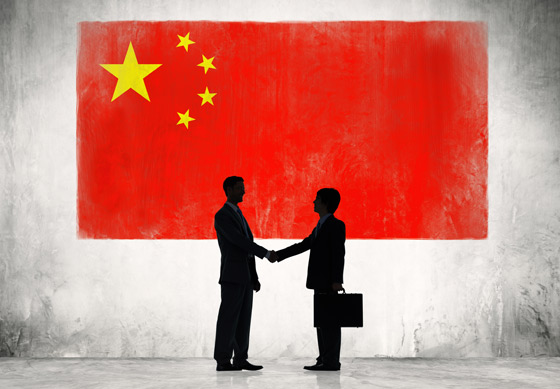
Greater access to Chinese market
If you are a foreign investor in China, we have got good news for you. And if you are not, it is time to think about expanding. The new negative list allows foreign businesses greater access to Chinese market.
Since 2010, China’s economy has been slowing1. In 2013, to turn the tide, China started testing a new economic policy in its Shanghai Pilot Free Trade Zone (SPFTZ)2. Four years later, the economy has begun to rebound3, in part due to the SPFTZ4. This zone flips the normal rules: instead of confining foreign investment to a short list of approved sectors, foreign trade is restricted or banned from a very long list (“negative list”) of protected industries. Each year, the list is shortened.
But this year, in a bold move, China is taking its experimental policy nationwide. This new economic policy doubles the market volume available to foreigners. Venture capitalists can now operate almost unrestrainedly in over 20 new territories and zones, together roughly 51.11% of China’s GDP (gross domestic product). That is an increase of $5.725 trillion, or a little over 7% of the global market5.
Beginning on the 28th July 2017, these changes go live in the rest of China. As long as your prospective business is not on the government’s 63-item list, you are in the clear. If your business is on that list, it might be restricted or prohibited outright, according to Richard Hoffmann, our Ecovis expert in China.
 China is opening up further industrial sectors for foreign investors. This offers enormous opportunities to businesses looking to establish themselves on the Chinese market.
China is opening up further industrial sectors for foreign investors. This offers enormous opportunities to businesses looking to establish themselves on the Chinese market.
Additionally, about 30 industries previously banned have been opened to foreign investment. They include:
- Service: highway passenger transport, ocean-shipping logistics, water conservation projects, and some large-scale agricultural machinery production
- Manufacturing: automobile electronics, motorcycles, batteries for electric cars, satellites and rocket payloads, marine equipment, railway-transport machinery, liquid biofuels, and the processing of edible oil and fats from soybeans, peanuts, rapeseed, etc.
- Mining: exploration and development of unconventional oil and gas resources, mining of precious metals, refining and smelting or rare metals, and the mining and processing of lithium ore
The emphasis here is clearly on alternative energy and e-mobility. This is great news for Norway, which leads the world in electric vehicle (EV) use per capita6, and rather bad news for Tesla, the battery cost-cutting initiative of which began only last year. Growth in the rare and precious metal sector, with particular emphasis on lithium ore, will likewise support a move toward EV production.
Some additions have been made to the encouraged category, too, including virtual reality and augmented reality devices, the construction of hydrogen refueling stations, and the production of 3D printing equipment7. Meanwhile, foreigners have been banned from starting businesses in aerial photography and book publishing. In short, foreign investments in the alternative energies, e-mobility, and mining are about to see a veritable Chinese renaissance.
Author:
Richard Hoffmann, partner,
Ecovis, Beijing, China
richard.hoffmann@ecovis-beijing.com
1https://www.forbes.com/#3e7a28382254
2https://www.ecovis.com/focus-china/new-policy-regarding-china-shanghai-pilot-free-trade-zone/
3money.cnn.com/2017/07/17/news/economy/china-gdp-growth-q2/index.html
4onlinelibrary.wiley.com/doi/10.1111/twec.12364/abstract
5https://data.worldbank.org/data-catalog/gdp-ranking-table
6e360.yale.edu/features/with-norway-in-the-lead-europe-set-for-breakout-on-electric-vehicles
7www.ecovis-beijing.com/en/blog-en/articles/918-china-issues-new-foreign-investment-guidance-catalogue
Contact us:
ECOVIS European China desk
Lenaustrasse 1269115 Heidelberg
Phone: +49 6221 9985 639
www.ecovis.com/heidelberg

